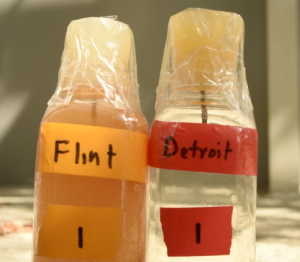
There is some “new” news out of Flint this week: Recent testing of lead in the city’s troubled water system shows things are improving six months after the city switched its water source and began adding chemicals to control corrosion of aging pipes.
That’s the good news.
The bad news is that the good news isn’t good enough.
This week’s Washington Post headline says it all: “Water in Flint, Mich., is improving but still unsafe to drink, researchers say.”
The article quotes Marc Edwards, the Virginia Tech professor who helped uncover the massive contamination in Flint’s water supply, as saying, “There are very positive trends…The system is definitely on its path to recovery.”
But because recent samples showed that potentially dangerous levels of lead persist, Edwards added, “at present, no one should be drinking unfiltered water in Flint.”
And so an absolutely unconscionable situation continues: An entire city in the U.S. with a population of about 100,000 people, mostly African American and mostly lower-income, remains without safe drinking water. And the Senate leadership simply sits back and watches.
We can, and should, debate how we let this happen. In the meantime, we must continue to push the Senate to pass the Drinking Water Safety and Infrastructure Act (S.2579), which would provide nearly $250 million to assist with the repair of water infrastructure in Flint and other localities affected by lead-contaminated water. This emergency legislation includes money for health care – sadly, we can anticipate that many children exposed to lead poisoning will need monitoring for years to come.
This post was originally published on the Coalition on Human Needs' blog, Voices for Human Needs. Receive similar articles in your inbox by subscribing today, and follow CHN on Facebook and Twitter.



The views and opinions expressed in this post are those of the author(s) and do not necessarily reflect those of MomsRising.org.
MomsRising.org strongly encourages our readers to post comments in response to blog posts. We value diversity of opinions and perspectives. Our goals for this space are to be educational, thought-provoking, and respectful. So we actively moderate comments and we reserve the right to edit or remove comments that undermine these goals. Thanks!